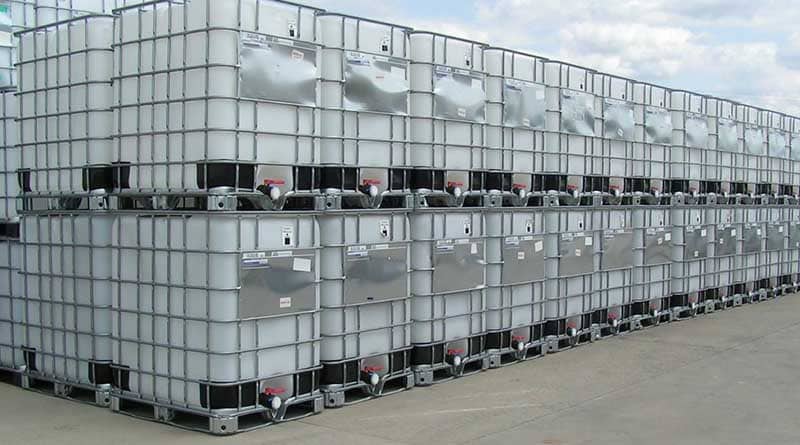You stumble upon this discussion as you evaluate which IBC tote is best for your needs. You’re likely considering material durability, cost, and whether your contents have specific storage requirements.
You must weigh whether stainless steel, carbon steel, or HDPE aligns with your operational demands, especially if chemical compatibility is a concern. But there’s more to the selection process than just the material.
By understanding the nuances of each option, you’ll be better equipped to make a decision that could significantly impact your operational efficiency. What other considerations must you keep in mind?
Analyzing Capacity Needs
Calculate the volume based on how much liquid or material you plan to store or transport. Assess your production output, storage duration, and frequency of refills to determine your volume requirements accurately.
Assess your project’s load to determine the appropriate IBC tote capacity, considering storage space, operational efficiency, and refill frequency. Evaluate the volume of liquid and match the IBC tote size to your specific project load requirements. This strategic approach guarantees efficient storage and transportation while avoiding unnecessary costs.
Determine the best IBC tote size by analyzing your project’s specific capacity needs, guaranteeing efficient space and cost management. Choose between 275 and 330 gallons, based on the volume of liquid you’re handling.
IBC Design Considerations
You must consider the chemical compatibility of the IBC tote’s material with the product it will store to avoid reactions or contamination.
Opt for FDA-approved polyethylene or stainless steel in food-grade applications, ensuring safety and adherence to industry standards.
Material composition affects durability and corrosion resistance, essential for longevity.
Evaluating the IBC tote’s capacity and dimensions is crucial to make sure it fits your specific storage and transportation needs. Consider sizes ranging from 275 to 330 gallons to match your liquid volume requirements, enhancing storage efficiency.
Outlet and Valve Choices
Consider valve options like butterfly or ball valves to guarantee efficient dispensing from your IBC tote. Choosing the right outlet and valve configuration is essential for meeting your dispensing needs and enhancing product handling.
Whether you’re using caged IBC totes or others, these valves’ controlled flow ensures operational convenience. Always align your choices with your application to optimize efficiency and integration.
UN/DOT Certification Importance
When selecting an IBC tote for hazardous materials, verifying it has UN/DOT certification is crucial for safety and compliance.
- Compliance with Regulations: Ensures you meet legal requirements.
- Safety Assurance: Reduces risks associated with handling hazardous materials.
- Necessary Testing: Confirms the tote’s durability and suitability.
- Food-Grade Suitability: Suitable for safe food transport when needed.
- Regulatory Adherence: Helps avoid legal and financial penalties.
Matching Totes to Applications
To guarantee peak performance and compliance, match your IBC tote’s material, capacity, and design to its specific application.
For food storage, choose food grade IBCs that guarantee safety.
If you’re transporting corrosive liquids, opt for stainless steel IBC totes, known for their corrosion resistance.
Selecting an appropriate tote optimizes the storing and transporting process, meeting your specific needs effectively.
Maintenance and Cleaning Tips
Regular maintenance and proper cleaning of your IBC totes are essential to uphold the purity and safety of the contents.
- Follow manufacturer’s guidelines on cleaning procedures.
- Use approved cleaning agents to prevent contamination.
- Regularly inspect totes for integrity and leaks.
- Implement a routine cleaning schedule.
- Guarantee complete drying to maintain product purity.
Finding Quality IBC Suppliers
Selecting the right IBC supplier necessitates evaluating their reputation, the range of products they offer, and genuine customer feedback. Choose reputable IBC suppliers like Snyder or Mauser for quality products known for durability and efficiency.
Confirm they meet your specific needs and check for essential certifications and compliance with industry standards. This careful selection guarantees you invest in a reliable, efficient solution.
Conclusion
Choosing the right IBC tote is essential for your operations. Consider stainless steel for durability or HDPE for corrosion resistance, and weigh these against your budget and application needs. Remember to consider capacity, design specifics, and UN/DOT certifications.
Always opt for reputable suppliers to guarantee quality. Remember, a stitch in time saves nine regular maintenance will extend your tote’s lifespan. Make a well-informed decision to enhance efficiency and cost-effectiveness. Visit verdetrader.com for more information and to explore your options.




